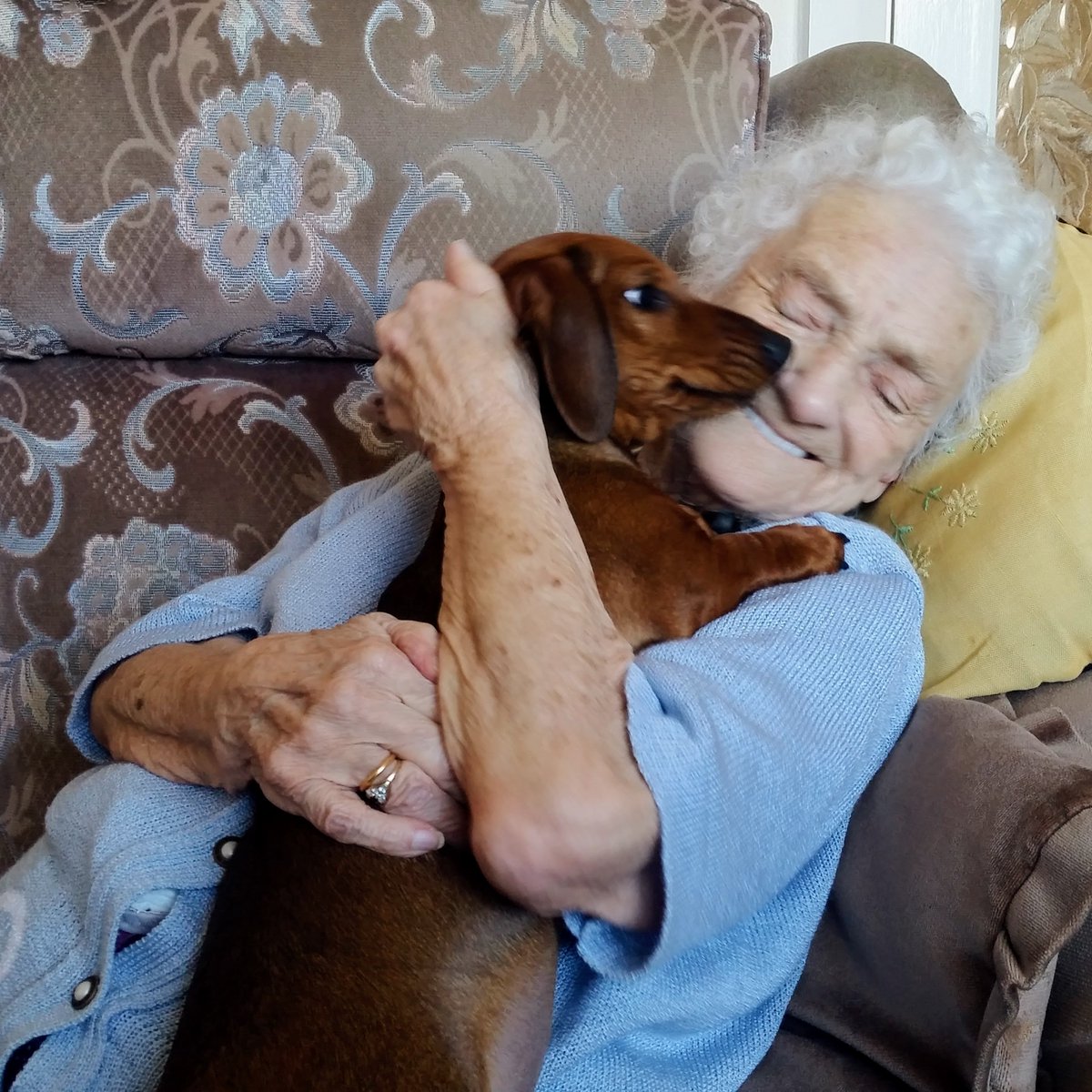
- Inspiring People -
- 3mins -
- 1,080 views
See the transformation in this Alzheimer’s Grandma when a borrowed dog comes to visit
Pictures of a grandmother stricken with Alzheimer’s having fun with a visiting ‘Borrowed’ dog went viral on Twitter recently. Her family are members of an initiative in the U.K. and Ireland that pairs pets with people part-time.
The heartwarming images have now been shared and liked on Twitter thousands of times
On the last day of February, Richard Dawson Tweeted some pictures of his Nan enjoying a visit from "Orla" a borrowed 9-month-old Dachshund puppy. Winifred Lowe is 95 years old and suffers from Alzheimer’s disease. She receives regular twice-weekly visits from the little dog and they clearly both enjoy each other’s company. The initiative is called BorrowMyDoggy, and it aims to match the right dog with the right person.

‘Our aim is to make a positive impact on the lives of dogs and people’ – BorrowMyDoggy
Richard Dawson and his brother recently discovered a service, BorrowMyDoggy, which pairs dog owners in the United Kingdom and Ireland with people who could use a little canine affection.
The mission statement on their Facebook page says–
‘Our aim is to make a positive impact on the lives of dogs and people by building local dog loving communities. BorrowMyDoggy members have shared how their lives have improved, including the lives of their dogs, since joining BorrowMyDoggy, as they now enjoy extra love, attention and exercise when they may otherwise be alone at home.’
Source: earthables.com

How Can Pets Benefit Alzheimer’s Patients?
Alzheimers.net blogged recently – Anyone who owns a cat or dog can attest to the beauty of their unconditional love, and animals often forge a special connection with people with Alzheimer’s and dementia.
However, it is important to also keep in mind that the opposite reaction could occur as well.
Researchers have long suggested that pets are good for us, even offering health benefits such as lowering blood pressure and heart rate, reducing the stress hormone cortisol, and boosting levels of the feel-good hormone, serotonin.
The following video uploaded to Youtube shows Lisa Abeyta’s father interacting with the family dog. Ordinarily the Alzheimer’s had affected his ability to speak, but in the company of the dog he became more like his old self.

If you’re considering taking your pet for a visit, here are some points to bear in mind.
- Be mindful of the pet’s temperament and energy level. Too much jumping and/or excessive barking may do more harm than good.Consider time of day. Morning or early afternoon visits are probably better choices than late afternoon and evening when Sundowner’s is setting in.
- Don’t wear out Fido’s welcome. Always stay tuned in to your loved one’s demeanor, as they can quickly reach a point of overstimulation. If they begin to show signs of agitation, simply know that it might be time to end the visit.
- Realise that Alzheimer’s and dementia patients are unpredictable when it comes to pets. Sometimes they will be delighted to see the animal, other times they may not be interested.
Source: alzheimers.net

